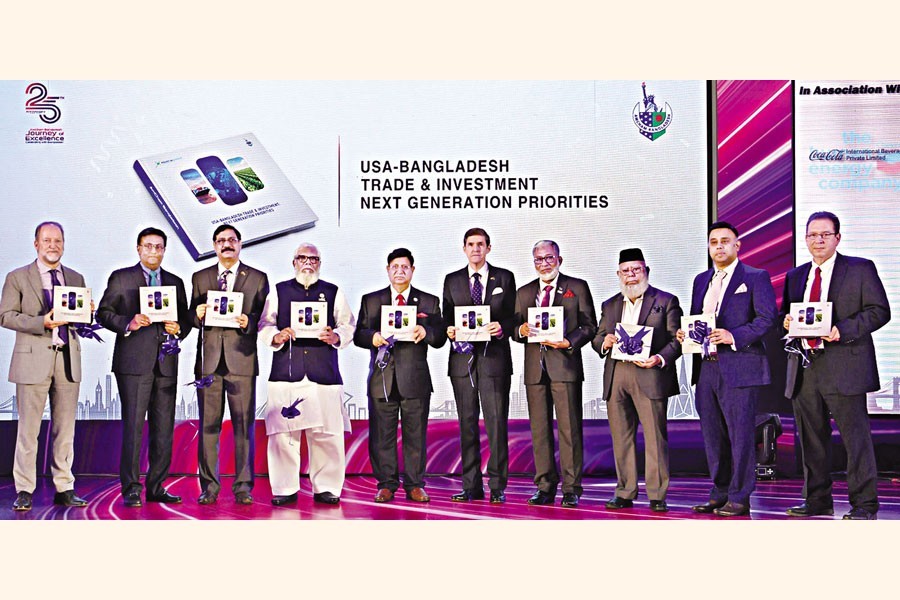Business leaders and policymakers Thursday suggested showcasing Bangladesh's business potential more vigorously to lure bigger volumes of foreign direct investment, needed most now as the country is bound for LDC graduation.
Addressing the 25th-anniversary-celebration meeting of the American Chamber of Commerce in Bangladesh (AmCham) in Dhaka, they also felt that the true potential of the US-Bangladesh bilateral trade need to be explored as a measure to prepare the country to face the post-LDC challenges.
Foreign Minister Dr AK Abdul Momen, who was the chief guest at the programme, urged the American investors to take the advantage of the cheap but intelligent labour force of Bangladesh.
He felt that the US companies can be competitive by shifting to Bangladesh.
"Bangladesh is the right place to make money," the minister said, assuring that protection of the foreign investment in Bangladesh will be guaranteed.
He lauded the US government for their support during the Covid-19 pandemic and announced that the US government assured of providing 29 million vaccines to Bangladesh.
He also expressed gratitude to the US government for its continued support on the Rohingya issue.
Dr Momen proposed that the US government provide duty-free facilities to the Bangladeshi RMG products made of US cotton.
The foreign minister also urged the USA to help Bangladesh in restructuring the coastal embankment.
"And you can charge toll by constructing road along the seashore," he told the US investors.
Salman F Rahman, private industry and investment adviser to the Prime Minister, said that inclusive growth is the core objective of the present government.
He pointed out that keeping this in mind the government has provided huge cash incentives to the underprivileged section of the people so that they could be able to graduate themselves from poverty and to be self- reliant economically.
Mr Salman Rahman, who was the special guest on the occasion, forewarned that if the country failed to plan and take action properly after having graduated to middle-income country, it may be stuck in the same status.
He noted that as the tax-GDP ratio is very low in Bangladesh, a handful of people have to bear the burden of higher taxes.
Suggesting expansion of the tax net to reduce the tax burden of the current tax payers, he said, "Investment will automatically go up if we can increase the tax revenue through expanding the tax net."
A vibrant bond market and capital market are crucial to easing the burden on the banking system, the industrialist felt.
He said though now the government is heavily making investment in public sector, but at one stage, when public investment will be lower, there will be a need for strong surge in private investment.
"Though the United States is the largest investor in Bangladesh, in absolute terms we can get much more investment from the US," Salman told his business audience.
He suggested AmCham to get more US companies to be involved with local business, especially in sectors like agribusiness and IT.
US Ambassador in Dhaka Earl Miller told the meet that, during the last three years, US-Bangladesh trade ties became deeper despite pandemic and in the coming days Bangladesh will see more visits by US businesspeople.
Among others, AmCham President Syed Ershad Ahmed and past presidents of the chamber Md Nurul Islam, Forest D Cookson, M Aftabul Islam, Syed Mohammad Kamal and Zamil Ahmed also spoke on the occasion.


